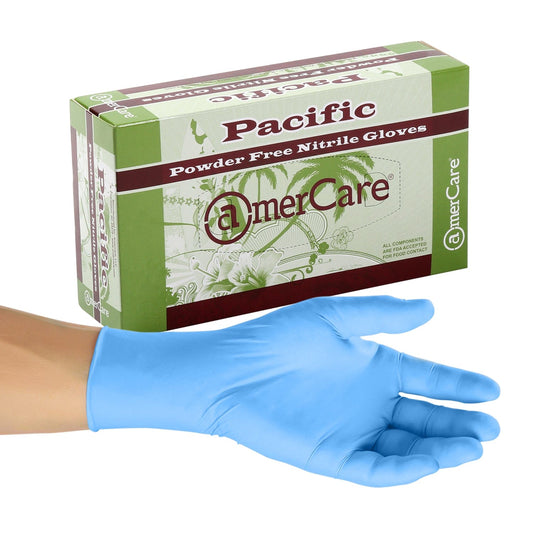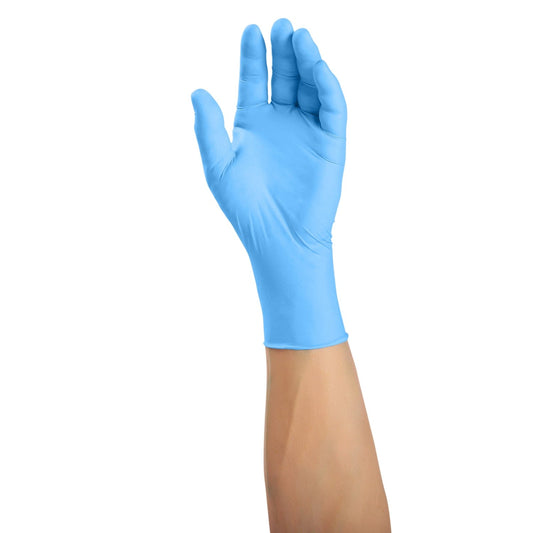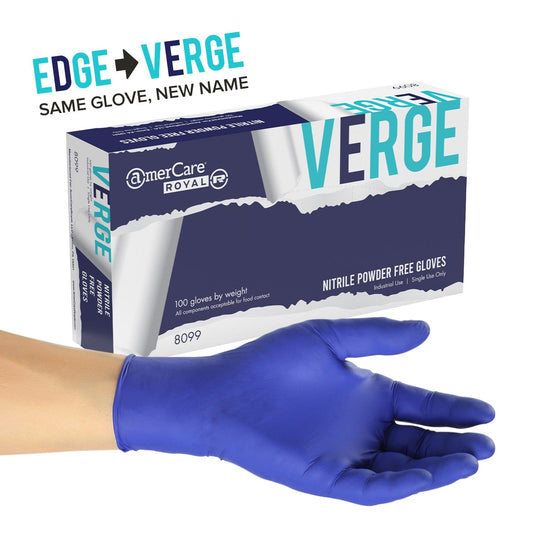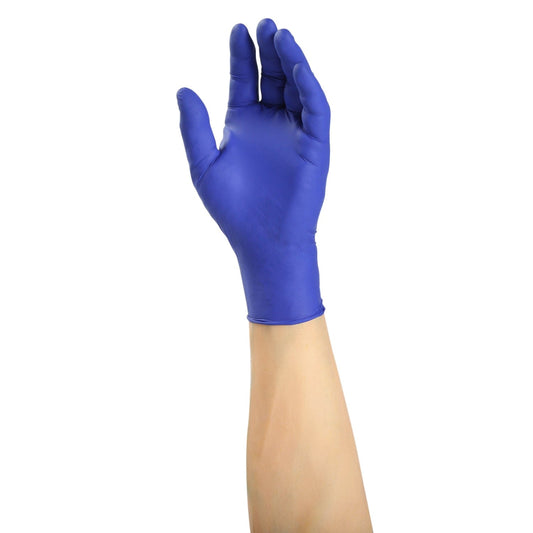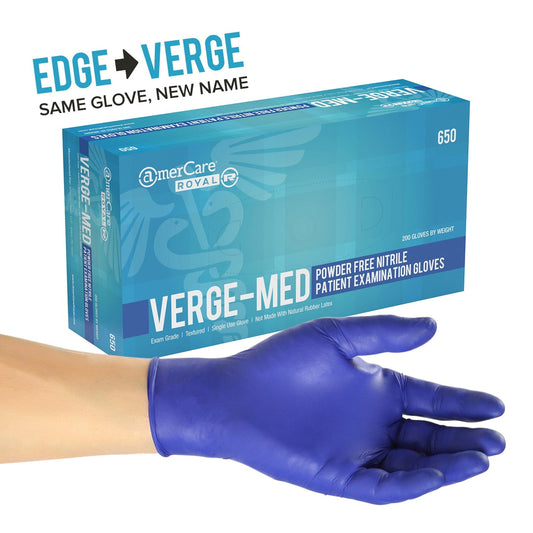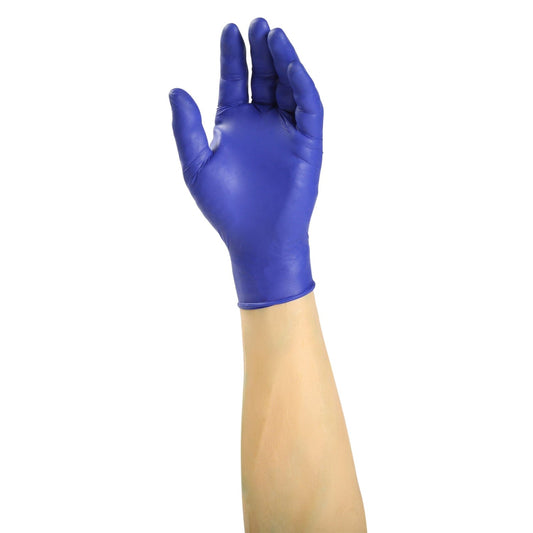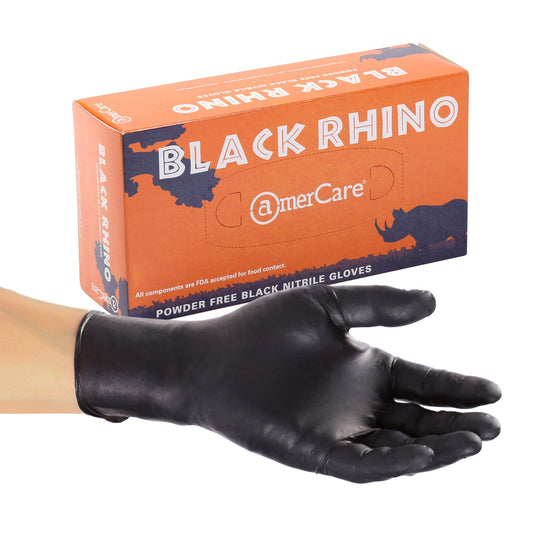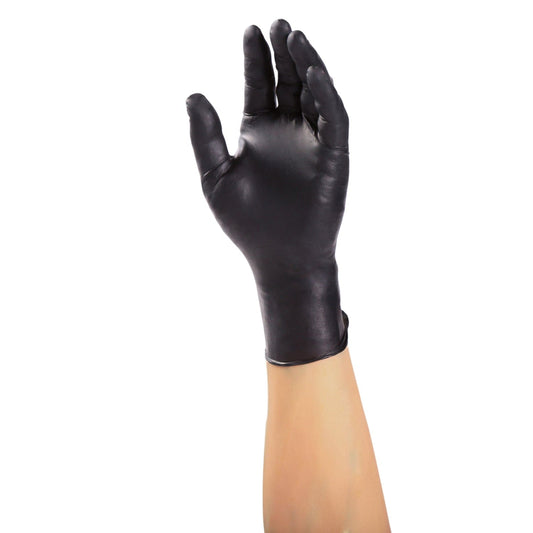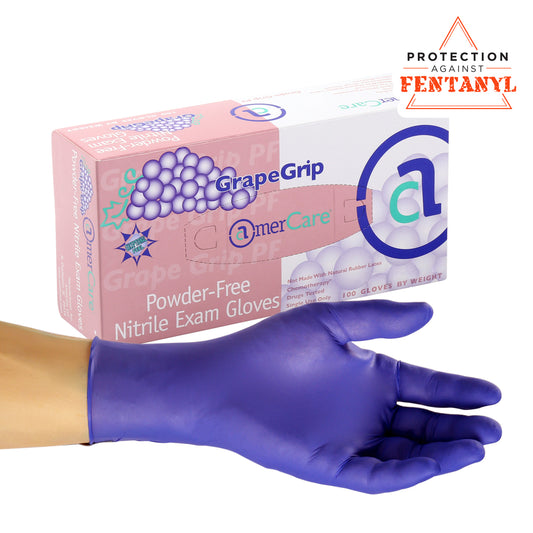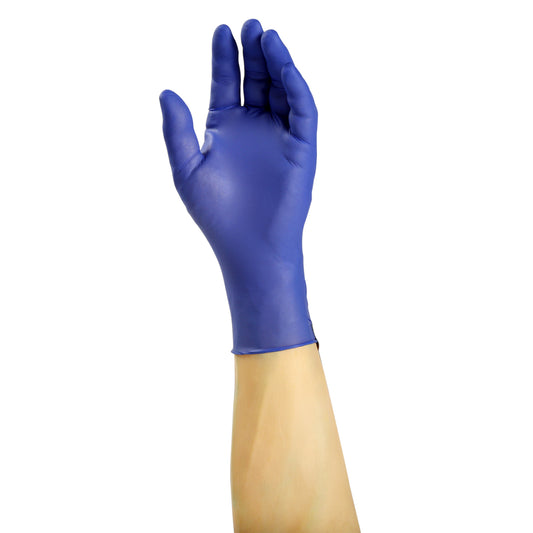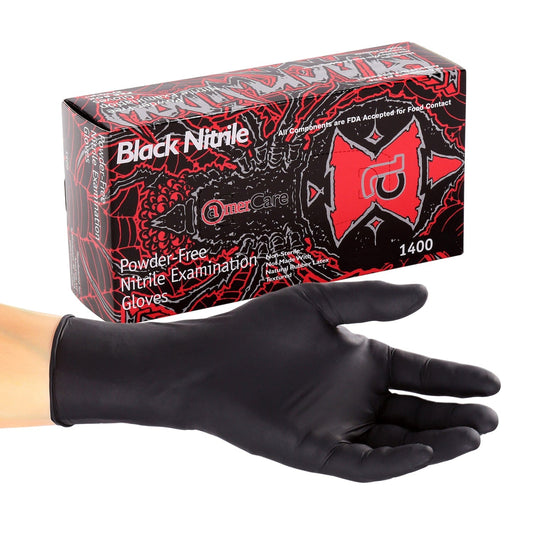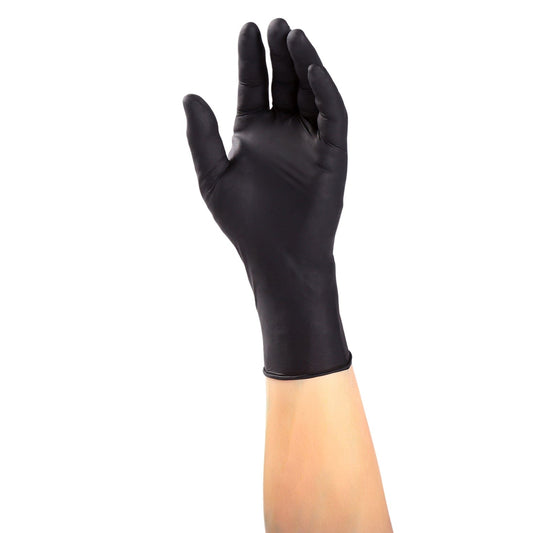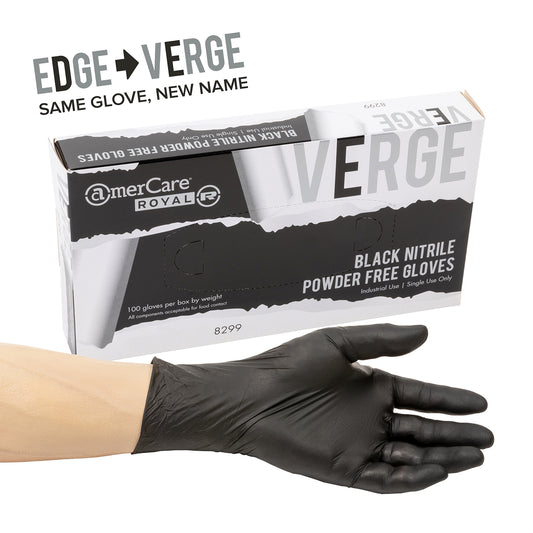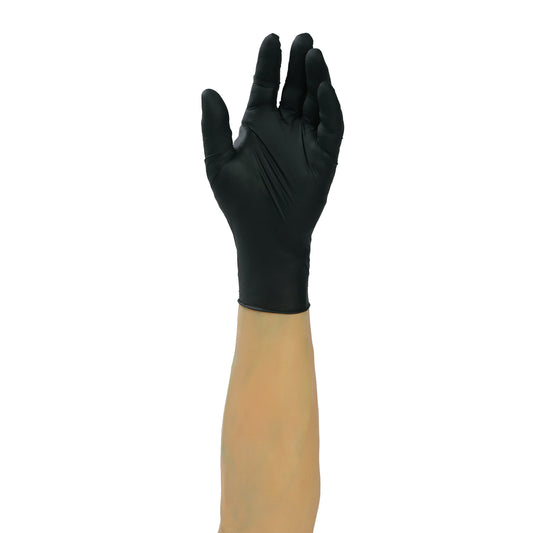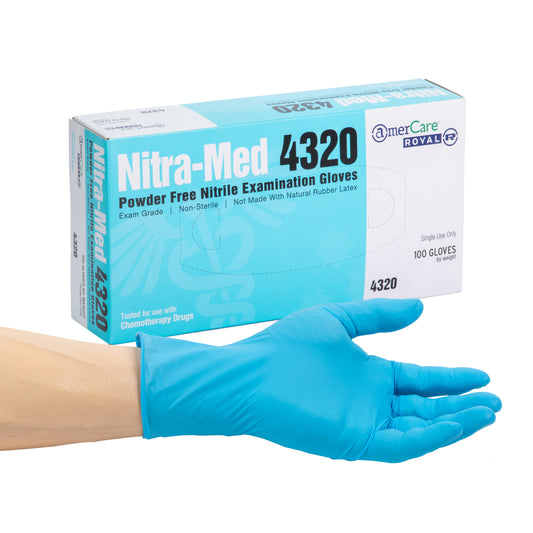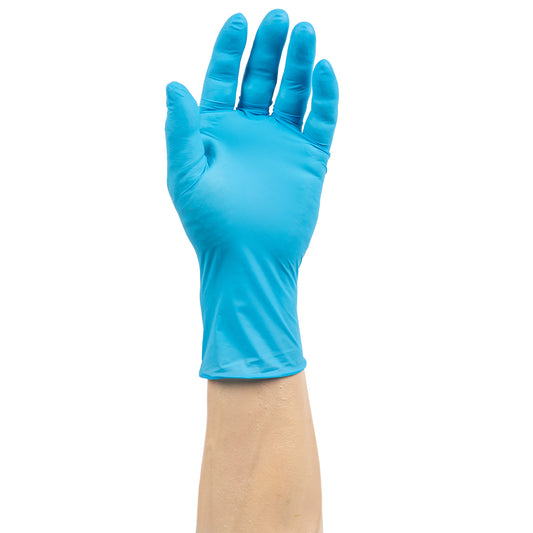Perfect for Completing Tough Jobs Our nitrile gloves are heavy duty and offer strong resistance to oils, acids, raw meats, and various chemicals. All of our nitrile gloves are FDA approved for food contact. Available with textured options that are suitable for delicate and intricate work. Nitrile gloves are versatile, durable and comfortable, making them the preferred glove in many...
Nitrile Gloves
8
products
SKU:
AC20991
Powder-Free Nitrile Pacific Blue Soft Gloves (S-XXL), Case of 1,000 (XXL: 900)
$84.98 USD
$68.99 USD
SKU:
AC60991
Powder-Free Nitrile Black Rhino Gloves (S-XXL), Case of 1,000 (XXL: 900)
$123.98 USD
$88.99 USD
SKU:
AC14001
Exam Grade Powder-Free Nitrile Black Widow Gloves (XS-XXL), Case of 1,000 (XXL: 900)
$126.98 USD

